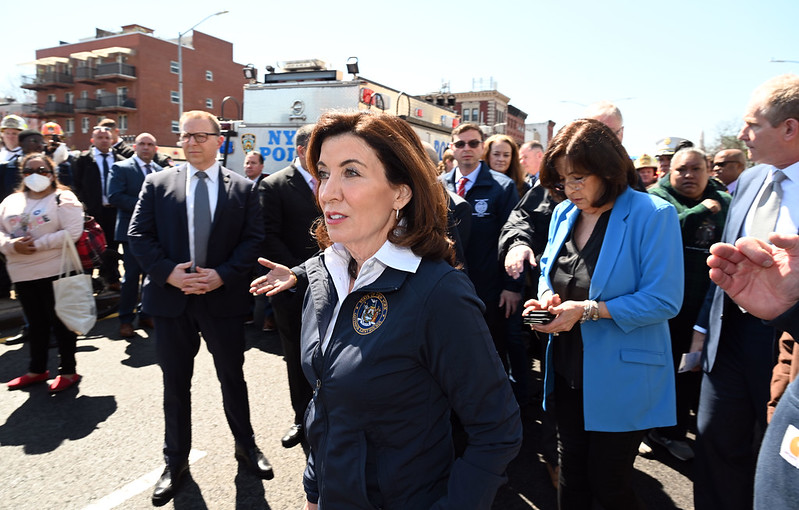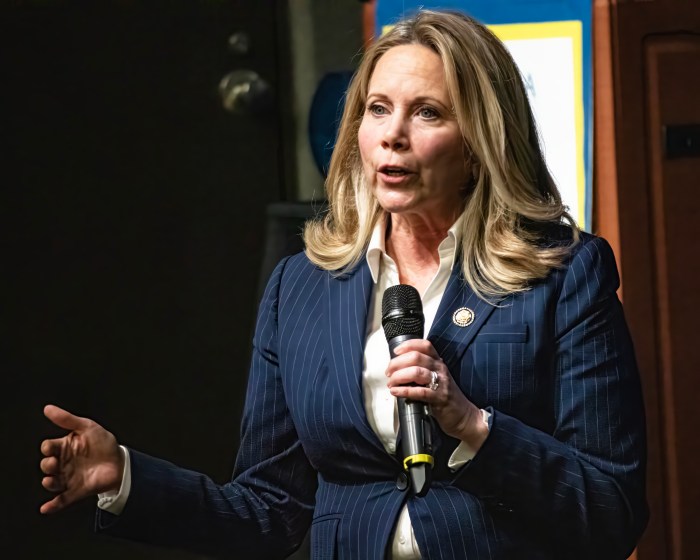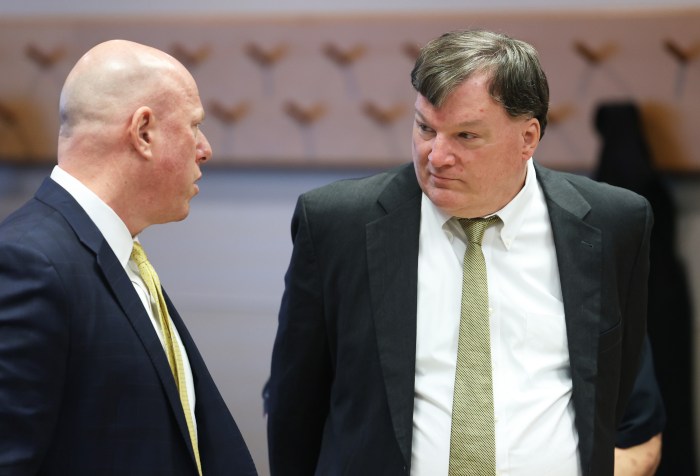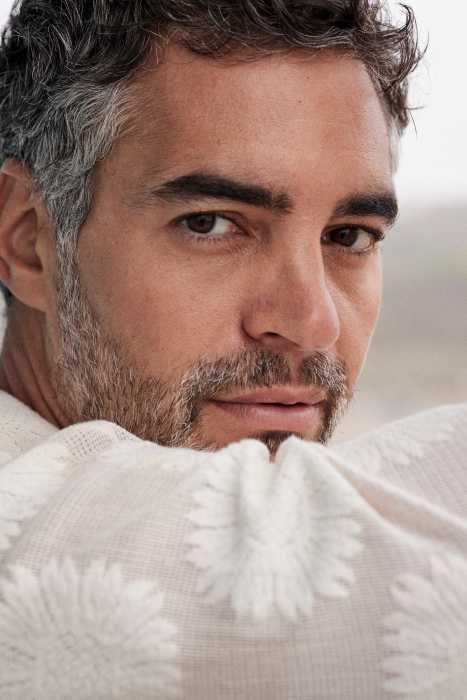In a wide-ranging radio interview with WNYC’s Brian Lehrer Wednesday morning, Gov. Kathy Hochul answered questions about Tuesday’s Brooklyn subway shooting, recent rollbacks to bail reforms passed in the state budget and the resignation of Lt. Gov. Brian Benjamin.
Hochul said she had scheduled the interview with Lehrer before Tuesday’s events, mainly to speak about the $220 billion budget passed over the weekend, but the shooting and resignation of her lieutenant governor ended up taking center stage. Particularly the shooting, where a gunman opened fire and detonated smoke canisters on a Manhattan-bound N Train pulling into the 36th Street station in Sunset Park – injuring 26 people, 10 of which were gunshot wounds.
“Well, it’s been traumatic for all New Yorkers to have to witness what happened on the subway,” Hochul said. “I was on the subway trains yesterday evening, just to get a sense of what people are feeling. And it just proved to me, Brian, that New Yorkers are so resilient. It’s almost like nothing fazes them, but we know deep down there is a sense of anxiety about their safety.”
According to several published reports, the prime suspect in the incident – Frank James – was taken into custody Wednesday afternoon in Manhattan.
In order to address straphangers’ anxiety about safety on the subways following the shooting, Hochul said she supports Mayor Eric Adams’ pledge to double the number of police officers on the transit system. But, Hochul added, she thinks this increased police presence will only be temporary until people’s collective anxiety following the incident dies down.
Additionally, in response to the criticism that more cops will lead to more arrests for low-level offenses and not necessarily a safer transit system, Hochul said she wants police officers patrolling the subways focussed on violent offenders.
“I want our police forces to be out there looking for suspicious individuals carrying bags that may have something like gas canisters or hatchets in them,” Hochul said. “So, they need to be vigilant, focusing on the threats that are out there. And I think this is going to be a temporary situation until the anxiety comes down.”
When Lehrer asked Hochul about the more permanent changes to criminal justice reforms that she pushed through in the state budget – mainly about the criticism from criminal justice advocates that there’s no data showing a link between 2019’s bail reforms and the current crime wave – she said she’s still a big champion of bail reform but felt some changes needed to be made. Rather than being a knee-jerk reaction to rising crime, Hochul added, these tweaks are addressing blindspots in the bail laws that won’t fundamentally change their original intent.
“Overall crime is up. Therefore when you look at the data, yes, it is skewed because it’s up all over the country,” Hochul said. “But that wasn’t the foundation for these changes. It was looking at areas that need to be addressed. Whether it was violent offenses and gun crimes that had not been included before. Making sure that victims of hate crimes and domestic violence also didn’t have their cases automatically dismissed based on a single piece of paper that might be missing. So, there are a lot of problematic loopholes. And we closed them.”
The bail reform rollbacks included allowing judges to set bail based on a defendant’s criminal history – including their past gun charges, the seriousness of the crime and whether they violated an order of protection.
Hochul, who took over for former Gov. Andrew Cuomo last August after he resigned over several sexual harrassment allegations, insisted that her push to make these changes in an election year were not about trying to appeal to more centrist voters who’re most concerned about the surge in crime.
Hochul also responded to a listener’s question about another controversial budget item that she fought for: a $600 million subsidy in taxpayer money to the Buffalo Bills for the team to build a new stadium. The listener asked why Hochul thought this was a good use of taxpayer dollars while the city and state are experiencing crises with mental health and homelessness.
Hochul said she has to balance many regional priorities around the state and was worried the team, which is very important to Buffalo, would move to another market if it didn’t get state funding for a new stadium.
“I was aware that they were being reached out to by other cities that have lost teams before. That is real,” Hochul said. “Their stadium was starting to crumble, something had to happen. And if there wasn’t a decision done soon, they had definitely other options. Buffalo is a very small market, it is quite extraordinary that they have a team at all, because there’s a lot more money to be had in those larger cities like San Diego and others. We’d love to have a team. So that’s the reality that most people probably aren’t familiar with.”
This story first appeared on PoliticsNY.com.
Sign up for Long Island Press’ email newsletters here. Sign up for home delivery of Long Island Press here. Sign up for discounts by becoming a Long Island Press community partner here.
































